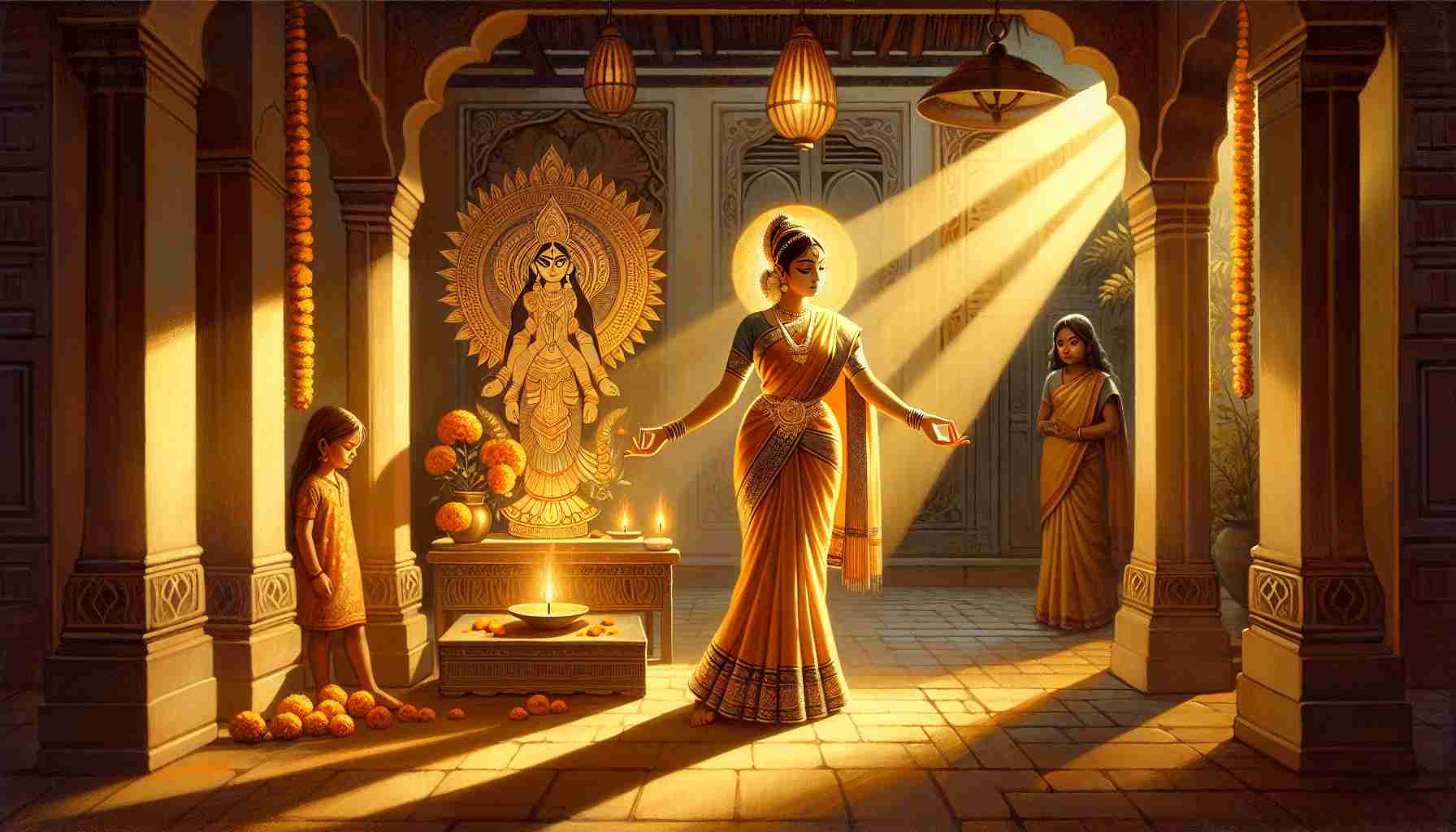

I was once known around our village as “the dancer of Dindori.” My name is Meena, and for years, the applause of others was the rhythm that moved my feet.
I started dancing when I was six. Bharatanatyam — that sacred, beautiful dance meant to honor the gods. At first, it was for devotion. But somewhere along the way, as crowds grew at performances and strangers whispered praises, it became something else. I began to crave their claps more than their silence, their eyes more than my own heart. I won competitions, gave shows in temples and towns. But the applause faded quickly after each curtain call. Still, I kept dancing, hoping the next one would fill the emptiness.
Then came the festival of Navaratri two years ago. I was asked to perform at a grand event, with important guests from the city. It was supposed to be my moment. But onstage, I forgot the sequence — a full blackout of the mind. My body froze, my breath caught, and I walked off mid-performance. No bows. No claps. Only stares.
Later, in my room, I cried like I hadn't since childhood.
For days, I wouldn’t come out. I refused to eat. Failure had clung to me like smoke.
Then one morning, Amma placed an old book on my bed — the Bhagavad Gita. Most of it I hadn’t read since school. But near the end, a verse caught me:
“You have a right to perform your duty, but not to the fruits of your actions.” (Bhagavad Gita 2.47)
I must've read it twenty times. My tears felt different then — not shame, but something releasing.
And I remembered again why I had started to dance — not for applause, but as seva — sacred service to the Divine.
That evening, instead of performing at a stage, I danced in front of our small home shrine, offering each mudra to the goddess Durga, known for her fierce compassion. No one clapped. Only a diya flickered. I felt more alive than I had before any crowd.
In the Ramayana, Hanuman — that devoted monkey warrior — never cared for applause. He burned an entire city for Lord Rama without asking for recognition. All he wanted was to serve. I had forgotten that.
Weeks later, I began teaching dance to two little girls in the village. No fees. Just joy. Their laughter returns more to me than any trophy ever did.
There is another verse from the Mundaka Upanishad I now carry in my heart: “The one who sees all beings in the Self, and the Self in all beings — such a person sees truly.” (Mundaka Upanishad 2.1.4)
I still dance, but the stage is simpler now — a courtyard, a temple gathering, or our garden during sunset.
People sometimes ask if I’ll ever compete again. Maybe. Maybe not.
But I know now: applause fades like smoke.
Service? That stays. Like the quiet light of a diya — soft, unwavering, enough.
I was once known around our village as “the dancer of Dindori.” My name is Meena, and for years, the applause of others was the rhythm that moved my feet.
I started dancing when I was six. Bharatanatyam — that sacred, beautiful dance meant to honor the gods. At first, it was for devotion. But somewhere along the way, as crowds grew at performances and strangers whispered praises, it became something else. I began to crave their claps more than their silence, their eyes more than my own heart. I won competitions, gave shows in temples and towns. But the applause faded quickly after each curtain call. Still, I kept dancing, hoping the next one would fill the emptiness.
Then came the festival of Navaratri two years ago. I was asked to perform at a grand event, with important guests from the city. It was supposed to be my moment. But onstage, I forgot the sequence — a full blackout of the mind. My body froze, my breath caught, and I walked off mid-performance. No bows. No claps. Only stares.
Later, in my room, I cried like I hadn't since childhood.
For days, I wouldn’t come out. I refused to eat. Failure had clung to me like smoke.
Then one morning, Amma placed an old book on my bed — the Bhagavad Gita. Most of it I hadn’t read since school. But near the end, a verse caught me:
“You have a right to perform your duty, but not to the fruits of your actions.” (Bhagavad Gita 2.47)
I must've read it twenty times. My tears felt different then — not shame, but something releasing.
And I remembered again why I had started to dance — not for applause, but as seva — sacred service to the Divine.
That evening, instead of performing at a stage, I danced in front of our small home shrine, offering each mudra to the goddess Durga, known for her fierce compassion. No one clapped. Only a diya flickered. I felt more alive than I had before any crowd.
In the Ramayana, Hanuman — that devoted monkey warrior — never cared for applause. He burned an entire city for Lord Rama without asking for recognition. All he wanted was to serve. I had forgotten that.
Weeks later, I began teaching dance to two little girls in the village. No fees. Just joy. Their laughter returns more to me than any trophy ever did.
There is another verse from the Mundaka Upanishad I now carry in my heart: “The one who sees all beings in the Self, and the Self in all beings — such a person sees truly.” (Mundaka Upanishad 2.1.4)
I still dance, but the stage is simpler now — a courtyard, a temple gathering, or our garden during sunset.
People sometimes ask if I’ll ever compete again. Maybe. Maybe not.
But I know now: applause fades like smoke.
Service? That stays. Like the quiet light of a diya — soft, unwavering, enough.